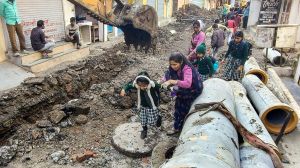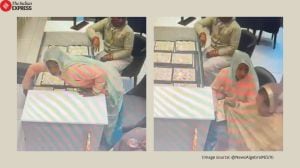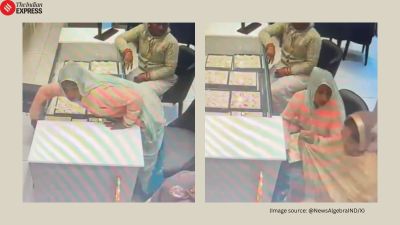Stay updated with the latest - Click here to follow us on Instagram
Are the IITs/IIMs world-class or third-class?
While Jairam Rameshs comments have stirred a hornets nest,his candour has to be lauded since this controversy may lead to a debate on actual versus perceived qualitywhen benchmarked with the best in the worldof our educational institutions,including IITs and IIMs.
While Jairam Rameshs comments have stirred a hornets nest,his candour has to be lauded since this controversy may lead to a debate on actual versus perceived qualitywhen benchmarked with the best in the worldof our educational institutions,including IITs and IIMs. Before Rameshs heretic statements,just about everyone in India took it for granted that these institutions are world class even if they failed (especially the IITs) to make an appearance in any credible global ranking of worlds best institutions. The myth has been propagated in recent years by a few US Presidents and several global business icons. Very unscientifically,we have chosen to believe that very high calibre alumni imply that we have very high calibre institutions when hard facts show no such correlation.
In Indias context,Darwins theory of natural selection is perhaps the best theory applicable to those who are able to enter the IITs,IIMs,AIIMS,national law schools and other highly respected centres of higher education. Less than 12% of all born in the country are able to go to college. Those who make it to college have already gone through a tough pre-selection process. Over 5,00,000 appeared this year for about 9,500 IIT seats,and over 2,00,000 aspired for about 2,600 IIM seats,including even for new campuses that have no worthwhile infrastructure to speak of. Only the most committed and capable in the country make it. Such individuals are likely to succeed in almost any environment and thrive in an environment encouraging perseverance and merit. So they account for a very high proportion in careers demanding very high intellect.
While the alumni of these leading institutions have achieved recognition,the same cannot be said of the faculty at large,though there would be notable exceptions. Compare the quantum and the quality of research output of institutions like MIT, Stanford and Cambridge,and the number of books authored by the faculty there.
It is,however,true that lamenting about the quality of the faculty (and their research output) in our institutions is not good enough. For world-class institutions,world-class infrastructure and financial budgets are needed. Sadly,most of governments have focused on rewriting history, reservations and stymieing reforms. For-profit education remains officially disallowed while charlatans,including many with political affiliations,openly profiteer by providing sub-standard education. Global world-class institutions are not allowed to open campuses in India even as lakhs of Indian students spend more than R20,000 crore every year to study abroad. Monthly tuition fees in some of our state universities are kept lower than the price of a movie ticket with popcorn at a multiplex. And we,more often than not,pay our teachers less than what an entry-level management trainee gets in a mid-size private company. Unless we urgently and holistically reform our entire educational,ideological and policy framework,we will continue to have the syndrome of having some of the brightest minds and yet,little academic and research impact even on India,not to mention the rest of the world.
The author is chairman,Technopak
Manish Sabharwal
One of my favorite Wharton professors,Bulent Gultekin,warned us that the most dangerous things people in financeand lifedo is to confuse Beta (luck) with Alpha (skill). The ancient Greeks called this confusion of correlation (two things happening at the same time) with causation (one thing caused the other) as Hubris. As we ponder simplistic and sweeping comments about faculty at IIMs and IITs from a prominent alum,clearly Professor Bulent and the Greeks were onto something.
The comments seemed to make the point that (a) the faculty is not world class,(b) these kids were like grass which would grow at night while faculty slept,(c) research is superior to teaching. I couldnt disagree more with all three. The first rebuttal is obvious; any company has good or bad managers just like every political party has corrupt and honest politicians. Drunk driving is not an argument against cars. Every school has good and bad teachers and so do the IIMs/IITs. Not only do faculty capabilities differ greatly within an institution but also across institutions and across time. The second point is more complex; nobody can deny that the IIM and IIT admission process is rigorous and their lack of credible competition for many years has created a reputation that sometimes does not live up to the student experience. But there are few alumni who do not acknowledge that they left these institutions not only more learned but more inspired because of the teachers they had. Plus,the recent resurgence of respect for the long-run superiority of non-cognitive skills over raw intelligence or IQ is important to consider because teachers have an important role in seeding these capabilities.
As WB Yeats said,education is not the filling of the bucket but the lighting of a fire.
The third point about research is the most complex. Nobody denies innovation and researchnot more cooks in the kitchen but a different recipeare a very important part of a vibrant intellectual environment. But it is unclear that research is superior to teaching from a student perspectiveare star researchers better teachers? In fact,some cynics in top schools with star faculties call them holy spirits; they are everywhere but you never see them! More importantly,why frame the issue as either/or? Why cant we have both? Any notion that a faculty member who has serial publications in dense peer-reviewed journals is superior to a faculty member who chooses to excel at the craft of teaching is unfair,unhelpful and uncalled for.
Finally,cutting edge and sustained research output from engineering and business schools needs a complex ecosystem that includes whats outside the gates. India is only now becoming fertile soil. The government demonstrated powerful vision by seeding the IIMs and IITs. But we can only pray that these institutions dont end up like other visionary state investments such as ITIs,UTI,HMT,BSNL and Indian Airlines,which were destroyed by simplistic but entertaining thinking.
The author is chairman,Teamlease Services







